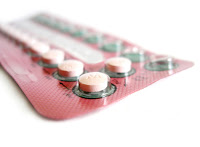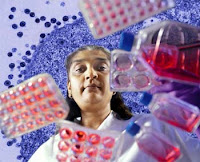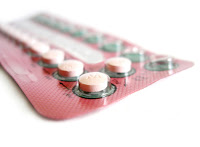Hormone replacement therapy referred to as HRT is used to relieve menopausal symptoms, especially hot flashes. A woman usually require hormone therapy of estrogen and progestin well. Women who had undergone a hysterectomy can take estrogen alone. Estrogen reduces hot flashes and prevent osteoporosis, but estrogen may increase the risk of cervical cancer. Added progestin in women with a uterus to prevent this.
Many studies have seen the relationship between hormone therapy and breast cancer. The best evidence for the benefits and risks of hormone replacement therapy comes from the Women’s Health Initiative (WHI), a large study Involving more than 16.000 healthy women. Results published in July 2002 showed the risks of HRT in combination with estrogen plus progestin outweigh the benefits. This includes increased risk of breast cancer, heart disease, stroke and blood clots.
National Institutes of Health concluded that the long-term use of combination hormone therapy can cause much more serious risk than its profits. Currently, 6 million U.S. women using a combination of hormones to reduce menopausal symptoms.
Not only the combined HRT increases the risk of breast cancer, but also increases the likelihood that cancer will be found in more advanced stages. This is due to the effects of reducing the effectiveness of mammography.
If a woman no longer have a uterus, estrogen alone can be given for menopausal symptoms. This may not increase the risk of breast cancer, in March 2004 from the WHI study concluded that those taking only estrogen had an increased risk of breast cancer or heart disease, but estrogen did not increase the risk of a stroke.
Benefits of HRT and the risk
Hormone replacement therapy is an effective treatment for reducing hot flashes of menopause. But the known link between hormone therapy and increased risk of breast cancer has discouraged many women and their doctors from choosing or recommending this treatment.
Type of hormone therapy can be estrogen therapy alone or combined estrogen and progestin, and women’s individual characteristics, risk factors, and severity of menopausal symptoms, should be considered when weighing the risks and benefits of HRT. The decision to use hormone therapy after menopause should be made by a woman and her health care provider after weighing all the potential risks, including heart disease, breast cancer, stroke and blood clots, and the benefits to the relief of menopausal symptoms and preventing osteoporosis .
HRT and breast cancer specialists have prevented many of the recommended breast for breast cancer can survive. However, many women who experience menopausal symptoms after breast cancer treatment. Some forms of chemotherapy can also cause premature menopause in Premenopausal Women.
Alternatives to HRT to Protect Your Bones From Osteoporosis
Selective estrogen receptor modulators (SERMs) are a new class of drugs similar to estrogen protects against osteoporosis by increasing bone density, while perhaps also protects against the development of breast cancer.
Raloxifene is a widely used SERMs that have been shown to increase growth and bone density. Unfortunately it did not reduce symptoms of menopause, like hot flashes and may actually worsen them. Although the FDA has approved this drug for prevention of osteoporosis, studies have shown benefits in preventing breast cancer.
Drink calcium and vitamin D every day to prevent or treat osteoporosis.







